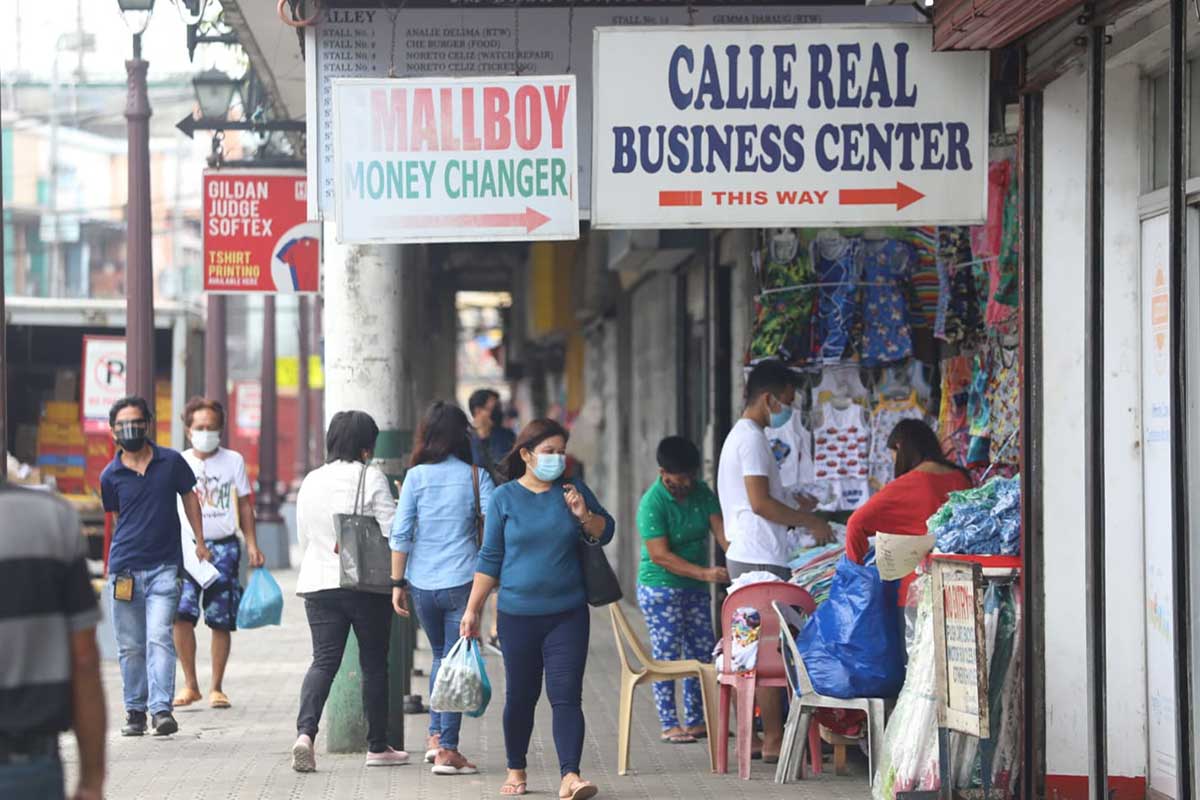
By Francis Allan L. Angelo
The bill seeking an additional P100 in the daily minimum wage of workers in the private sector has reached the Senate plenary, raising hopes among the labor sector of its eventual passage.
Senator Jinggoy Estrada, chairperson of the Senate panel on labor, employment, and human resources development, sponsored Senate Bill No. 2534 under Committee Report No. 190 during Wednesday’s plenary session.
Under the bills, all employees in the private sector in the entire country, whether agricultural or non-agricultural, are entitled to a P100-daily minimum wage increase.
Estrada acknowledged that the legislated wage hike is not enough to fill the needs of basic wage earners in the country.
“It was estimated that a family of five needs at least P8,379 per month to meet just their basic food requirements. That translates to about P280 for food expenses alone, in 2021—but in reality, this amount seems not enough considering the current prices of basic commodities,” he said.
Department of Labor and Employment (DOLE) Secretary Bienvenido Laguesma raised concerns about the proposed P100 minimum wage hike in the private sector saying it “might create difficulties for some businesses.”
Laguesma said in a Dobol B interview that the proposal “would result in an additional 15 to 25 percent increase in each employee’s salary, excluding wage related benefits, citing data from the National Wages and Productivity Commission (NWPC).”
“It’s somewhat sizable. Because out of more or less one million registered existing businesses in the country, more than 900,000 are in the category of micro, small and medium enterprises,” he said.
The bill is only bound for passage in the Senate, but it still has no counterpart measure in the House of Representatives.
Before a bill becomes a law, both Senate and the House must pursue a similar measure, then their representatives will meet in a bicameral conference to harmonize conflicting provisions and then forward it to the President for signature.
Labor group slams doomsday scenario
Meanwhile, labor group Partido Manggagawa (PM) slammed Laguesma for speculating that the P100 legislated wage hike will have an adverse impact on the economy, especially on small and medium enterprises.
“Labor Secretary Laguesma is singing the same old song with employers about economic difficulties once workers are granted a substantial wage hike. But they are singing out of tune as their doomsday scenario is refuted by economic indicators. Inflation and unemployment subsided since regional wages were increased in the latter half of 2023,” stated Mario Andon, PM Iloilo spokesperson.
PM welcomed the plenary deliberations in the Senate on the proposed P100 legislated wage hike bill. In Metro Manila, PM and other groups in Nagkaisa are returning to the Senate on Tuesday for a bigger action to demand the passage of the proposed nationwide salary increase and also call for the scrapping of the charter change proposal.
According to latest figures from the Philippine Statistics Authority, headline inflation as of January 2024 is at a very low 2.8%, much reduced from the 4.7% in July 2023, when the NCR wage board ordered a P40 minimum wage hike.
Inflation for year 2022 was 5.8%. Meanwhile, unemployment is at 3.1% as of December 2023, down from 4.8% in July 2023. In 2022, annual unemployment was at 5.4%.
After the NCR wage board issued an order, other regional boards successively granted minimum wage increases in the succeeding months of 2023 and up to January this year. The Region 6 wage board granted a P30 minimum wage increase on October 2023.
“Workers in all regions got minimum wage hikes in 2022. Further, all regional wage boards, except the one in BARMM, issued wage orders in 2023. In all that time, inflation and unemployment went on a secular decline in opposition to the dire predictions of employers and the DOLE,” Andon explained.
He added, “We call on the Senate and the House not to be blackmailed by the apocalyptic forecasts of enemies of the working class.”
NAGKAISA Labor Coalition said the Senate’s action “renews hope among workers and their unions for a standardized wage increase across the country, paving the way for the potential establishment of a singular national minimum wage in the coming days.”
The group noted that despite the original intention behind the establishment of Regional Tripartite Wages and Productivity Boards (RTWPBs) 35 years ago under Republic Act 6727 (Wage Rationalization Act) to foster economic balance through regional minimum wages, “this method has unintentionally created significant disparities and discrimination among workers.”
While a P25 national wage increase was granted making the P64 to P89 or almost 40% wage hike in 1989, “it replaced a uniform national minimum wage with that of a complex regional wage system characterized by a plethora of wage levels.”
“This has not only complicated the wage structure but also caused confusion in its application, making it difficult for workers to stay informed of the varying minimum wages within even a single region or province. The current setup has further exacerbated discrimination against workers in provincial and rural areas, especially those in agriculture, undermining the dignity of numerous Filipino workers and driving mass migration towards Metro Manila in search of higher wages,” NAGKAISA said.
This migration has contributed to the overburdening of the national capital with traffic congestion, overpopulation, and strained resources.
Likewise, the present minimum wage law has created poverty wages for many workers. All the minimum wages around the country are below the poverty threshold for a family of 5.
NAGKAISA, therefore, urges Congress to review and amend the present regional wage fixing mechanism instituted under RA 6727 aimed at satisfying the constitutional mandate of granting workers a living wage — as mandated in Articles XIII and XV of the Constitution.





















